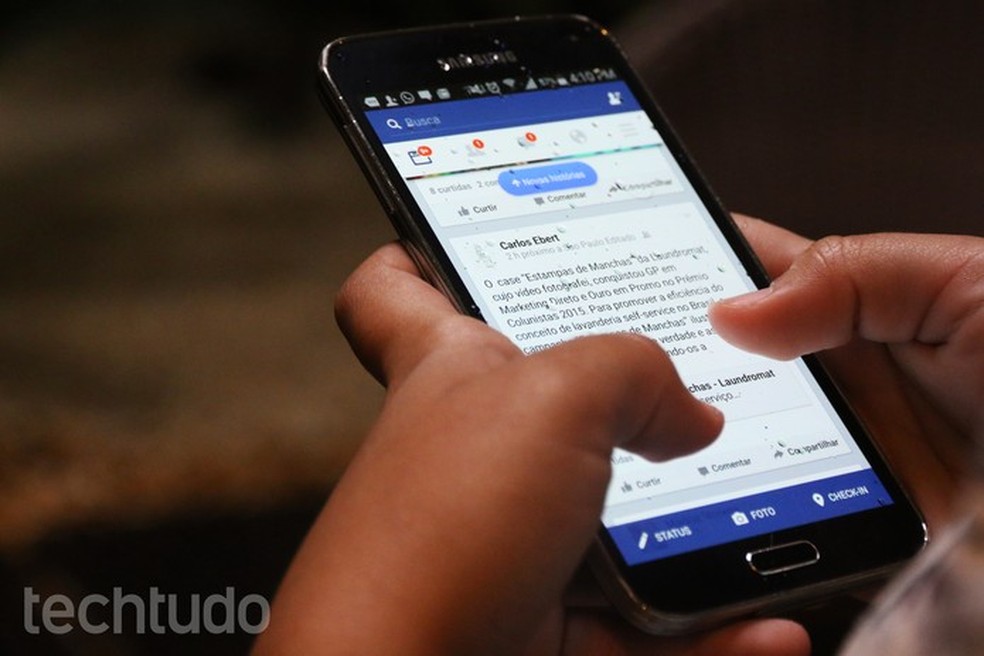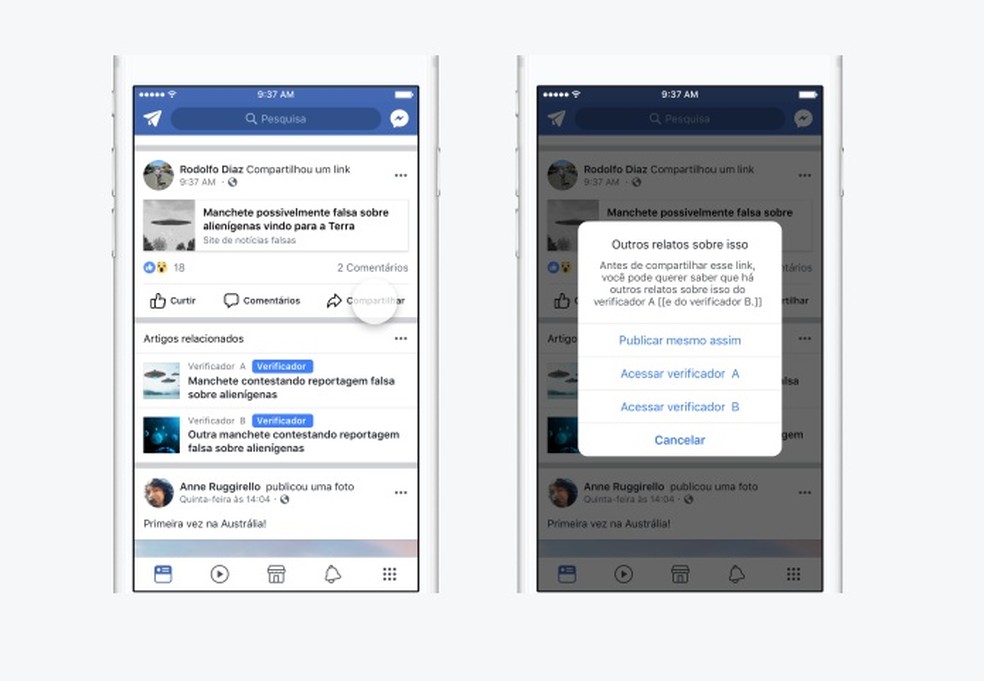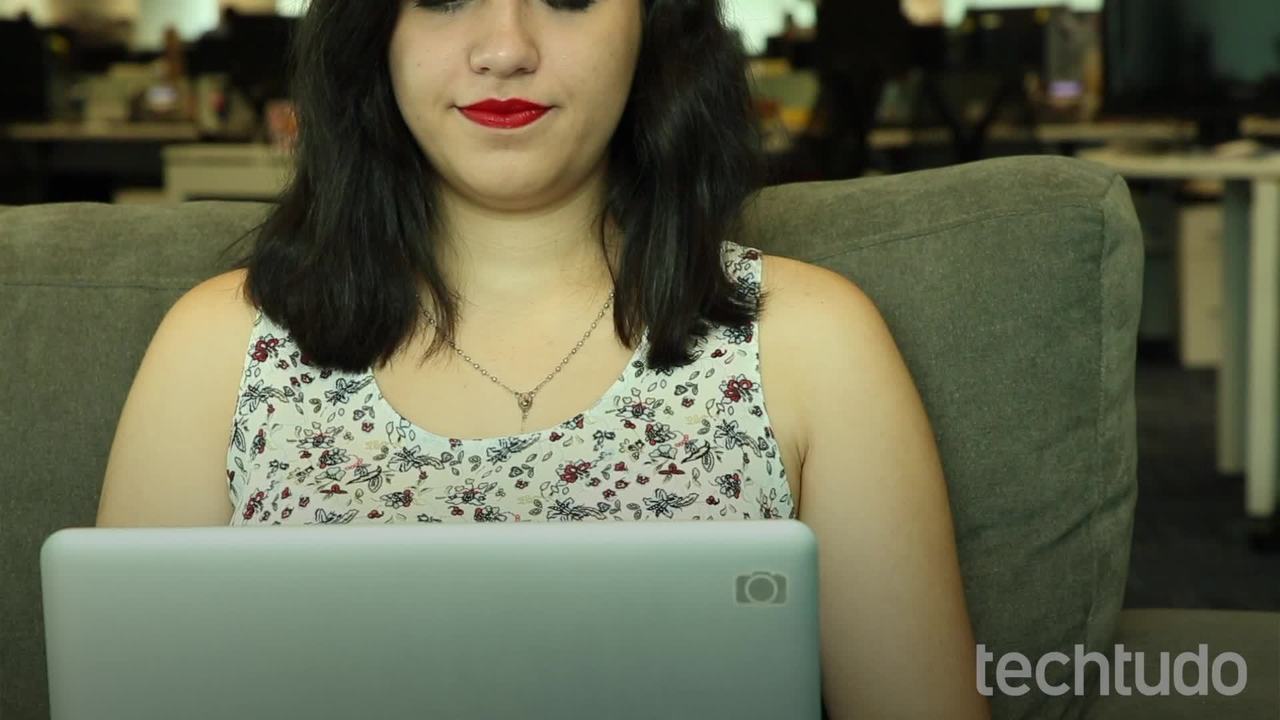Facebook's fake news check service arrives in Brazil next week. The mechanism will count on verifying the veracity of the information provided by two Brazilian organizations specialized in fact-checking: Agencia Lupa and Aos Fatos. The announcement was made on Thursday (10) in an official statement from the platform.
The initiative arrives in time for the election period, when the sharing of fake news intensified. The service will rely on the help of algorithms and the network's own users to identify and combat this practice.
Facebook changes privacy and makes it easier to remove apps; see how

Facebook brings changes in the fight against fake news Photo: Luciana Maline / dnetc
The fact-checking agencies will analyze complaints made by Facebook users. Then, news that is classified as false will appear less in the feed, thanks to an adjustment in the algorithm. The idea that this type of content will be seen by fewer and fewer people and, thus, prevent it from being propagated by the network.
In addition, publications that are downgraded may not be boosted through advertising. Administrators will receive a notification regarding the classification of the content as false. Pages that continue to share fake news may have their ad option blocked.

Notice that news may be false appears the moment the user is going to share Photo: Divulgao / Facebook
According to Facebook, this set of measures has a significant impact on the organic distribution of fake news. In the United States, where a similar solution was recently adopted, there was an 80% reduction in the share of fake publications.
Mark Zuckerberg's social network has supported some initiatives to teach Brazilians to find out when news can be false. In January, the network revealed two projects for this purpose. The "Vaza Falsiane!" an online course with free classes for students and teachers on how to identify fake news. Ftima is already a bot with which users themselves can identify dubious publications.
How to increase Internet security? See the dnetc forum.

Facebook: tips to prevent onlookers from looking at your information
